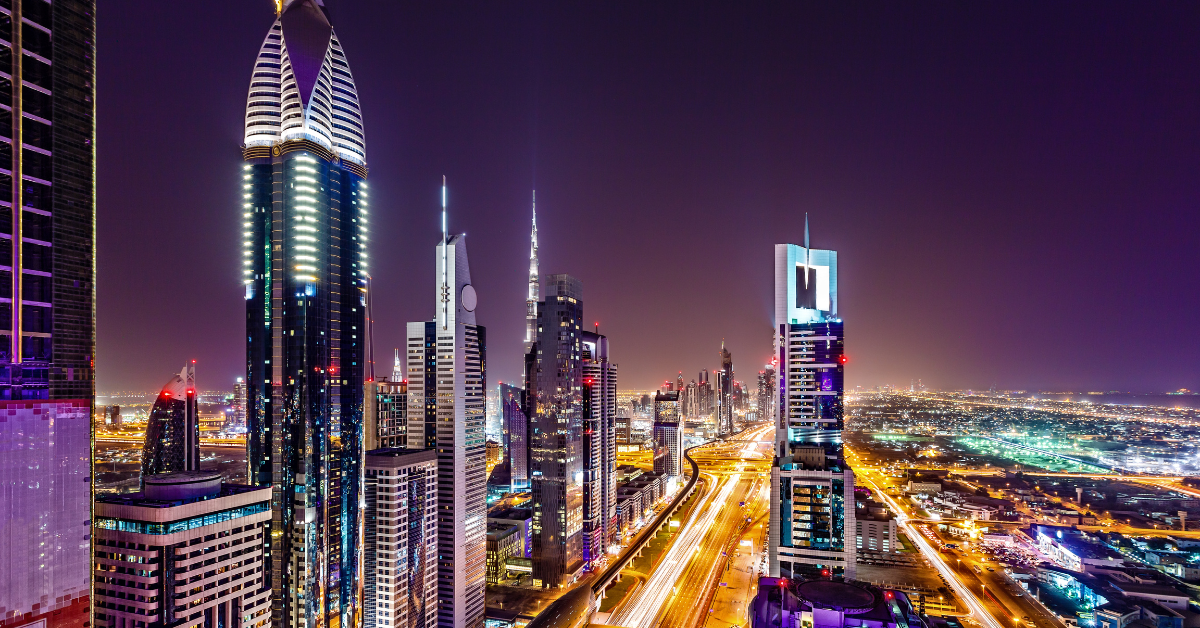The United Arab Emirates is often viewed by Japanese people as a country of wealth derived from oil, futuristic cities like Dubai and Abu Dhabi, and a society deeply rooted in Islamic traditions. This perception reflects not only the UAE’s rapid modernization but also the unique cultural experiences that attract many Japanese visitors.
Economic Prosperity Through Oil Resources
When Japanese people think of the UAE, the strongest impression is that of a nation enriched by oil. The UAE began exporting oil in earnest in the mid-20th century, and this revenue became the foundation for its rapid national development. The transformation from desert land into a metropolis of skyscrapers in just a few decades is often spoken of with awe and admiration in Japan.
In addition, the UAE’s success goes beyond oil exports, expanding into tourism, finance, and aviation. Leading airlines such as Emirates and Etihad are familiar to many Japanese travelers.
| Economic Sector | Japanese Perception | Actual Features |
|---|---|---|
| Oil Industry | Symbol of wealth | Core foundation of national revenue |
| Tourism Industry | Luxurious and glamorous | High-end hotels, giant shopping malls |
| Aviation Industry | Global brand | Emirates and Etihad Airways |
| Finance & Logistics | International hub | Free trade zones attracting global firms |
Thus, Japanese people tend to view the UAE as a forward-looking and strategically wise nation.
Modern Cities and Futuristic Landscapes
Another strong impression Japanese people have of the UAE is its futuristic urban landscape. Dubai’s Burj Khalifa, the tallest building in the world, is considered a must-see landmark for Japanese tourists.
Artificially constructed developments such as Palm Jumeirah and the massive Dubai Mall represent scales of luxury and ambition rarely seen in everyday life. These projects are not just displays of wealth but strategic efforts to attract global tourism and business.
| City | Japanese Perception | Actual Features |
|---|---|---|
| Dubai | Futuristic city, miracle in the desert | Tallest skyscraper, artificial islands, giant malls |
| Abu Dhabi | Calm cultural capital | Political and cultural hub, mosques and museums |
| Sharjah | Academic and cultural hub | Concentration of museums and universities |
From these contrasts, Japanese people perceive the UAE as a nation that has achieved a balance between economic strength and cultural depth.
Islamic Culture and Religious Traditions
The UAE is also inseparable from its Islamic culture. Japanese people often describe it as “a country where religion is deeply rooted in daily life.”
Daily prayers, the fasting month of Ramadan, and traditional attire such as the abaya, niqab, and kandura strongly emphasize cultural differences. Since rules on dress codes and alcohol also apply to tourists, Japan’s general impression is of a society that is disciplined and values order.
| Religious Aspect | Japanese Perception | Actual Practice |
|---|---|---|
| Prayer | Strict ritual | Five times a day as a daily routine |
| Ramadan | Unique fasting period | No food or drink in daytime, festive meals at night |
| Attire | Respect for tradition | Abaya, niqab, kandura |
| Social Rules | Strict regulations | Dress and alcohol laws in public |
For Japanese visitors, these differences are both educational and eye-opening experiences.
Tourism Impressions Among Japanese
In tourism, the UAE is strongly associated with luxury, extraordinary experiences, and cultural encounters.
| Tourism Aspect | Japanese Perception | Actual Features |
|---|---|---|
| Dubai Tourism | Luxurious and futuristic | Skyscrapers, mega malls |
| Desert Experience | Exotic adventure | Desert safaris, camel rides |
| Traditional Culture | Cross-cultural encounters | Souq shopping, traditional performances |
| Luxury Hotels | Symbol of extravagance | Seven-star hotels, lavish resorts |
This diversity makes Japanese people see the UAE as a “must-visit destination at least once in a lifetime.”
Sports and International Events
The UAE also has the image of a global sports hub, with many Japanese associating it with international tournaments.
In football, the UAE national team has made its mark in the Asian Cup, and matches with Japan have created strong impressions. Dubai hosts world-class tennis and golf tournaments, attracting top athletes. Abu Dhabi’s Yas Marina Circuit is home to Formula 1, broadcasted widely in Japan and leaving an impact on sports fans.
| Sport | Japanese Perception | Actual Event |
|---|---|---|
| Football | Asian powerhouse | Asian Cup host, Japanese players’ transfers |
| Tennis | World-class stars | Dubai Duty Free Championships |
| Golf | Luxury sporting venue | European Tour events, women’s tournaments |
| Motorsports | Glamorous stage | Formula 1 Abu Dhabi Grand Prix |
Thus, Japanese people view the UAE as a country that connects with the world through sports.
Business Hub Perception
For Japan, the UAE is strongly seen as a business gateway to the Middle East. Dubai, in particular, is regarded as a hub of international finance and logistics, with many Japanese companies expanding there.
Its geographical position linking Europe, Asia, and Africa reinforces its image as a strategic crossroads for global trade. The UAE’s political stability also makes it a reliable and attractive business environment for Japanese corporations.
Conclusion
The general image Japanese people hold of the UAE can be summarized in three key points: it is a nation enriched by oil, a land of futuristic cities, and a society deeply rooted in Islamic culture. In addition, its role as a host for major international sports events has strengthened its reputation among Japanese audiences.
Through tourism, business, culture, and sports, the UAE is perceived as a nation of multifaceted charm, continuing to deepen ties with Japan. For many Japanese, the UAE remains a “special country to visit at least once in a lifetime.”






